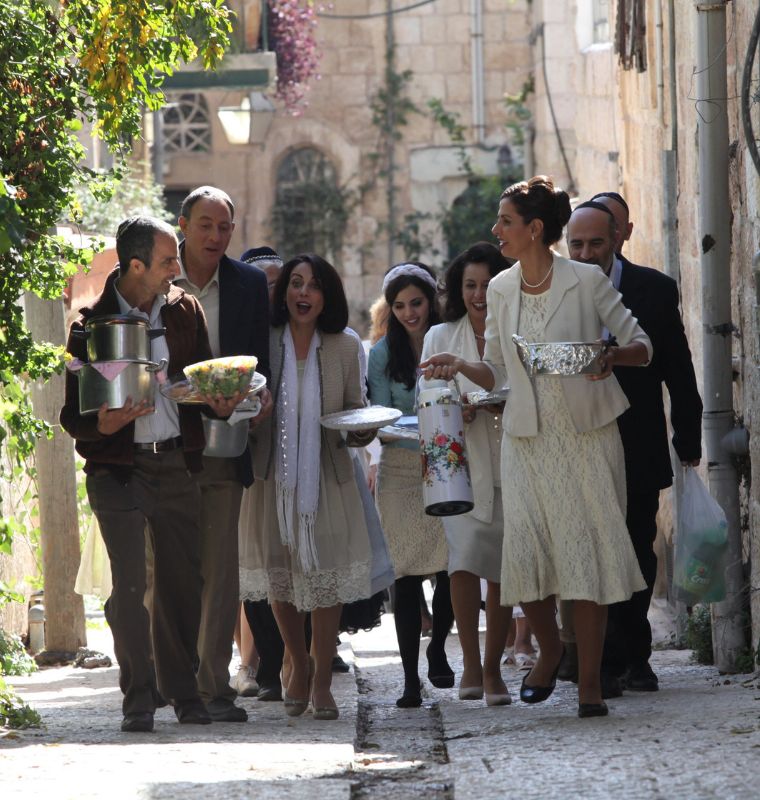Memoir of War | Summer Film Series
Memoir of War masterfully adapts Oscar-nominated screenwriter and novelist Marguerite Duras’s 1985 autobiography La Douleur. Chronicling the period in which Duras’s husband was arrested during and after the Nazi invasion of France, this evocative drama explores themes of loss, memory, and love in the wake and aftermath of war.
Mélanie Thierry Shines
A highlight of Memoir of War for any viewer is Babylon A.D. star Mélanie Thierry’s captivating performance as Duras. With the film broken into two sections—the first in which the author attempts to learn more information about her husband’s whereabouts from a member of the Gestapo police (portrayed by the indie sensation Benoît Magimel), and the second, in the post-occupation of France, as Duras waits for new of her husband’s return—Thierry accordingly portrays Duras in these distinct moments with nuance and care.

The Hollywood Reporter’s Neil Young raves that “Thierry is utterly convincing and compelling from first to last, in a deglamorized but sensual performance of tautly controlled severity and uncompromising rigor. Duras truly lets her guard down only twice…and Thierry nails every fluctuation of mood.”
The Los Angeles Times’s Robert Abele and The New York Times’s Glenn Kenny both concur in her prowess, noting how she gives “a commanding portrayal of Duras as a woman in an exquisite hell of steadfastness, inscrutability and suffering,” and “plays Marguerite with an understatement that can be enigmatic, seductive, or deliberately confounding,” respectively.
Community in the Wake of Tragedy
The film also investigates a wider community beyond just Duras, inspecting those also kept waiting by the uncertainty of their loved-ones’ wellbeing. Most notably and profoundly, Duras communes with her elderly neighbor, Mrs. Katz (Shulamit Adar).
Holding onto any hope that her Jewish and handicapped daughter is still alive, Variety’s Guy Lodge comments how, “Adar contributes the film’s most piercing performance as an elderly woman…waiting in what increasingly seems like vain for her daughter to return from the camps. Her open-hearted devastation plays in stark contrast to Thierry’s more fiercely guarded performance, though both women emerge as different sides of the same callously tossed coin: Memoir of War may be an opaquely personal diary of suffering, but it’s finally a communal film, serving Duras’s conviction that the Holocaust belongs to all.”
Duras's Style Reflected

Directed and written for screen by Emmanuel Finkiel, Memoir of War stylistically echoes Duras’s own filmography, all while expressing her discomfort and pain in uncertainty. With many of the film’s sequences depicting Duras walking or cycling through Paris, reflecting on her memories and inner turmoil, one cannot help but make connections to Duras’s beloved post-war classic Hiroshima, Mon Amour, a visual treat for any cinephile.
Finkiel’s impressionistic direction aids in depicting Duras’s torment in waiting, with, in some moments, unclear whether Duras narrates from the future or speaks in the moment. In another scene, Finkiel frames Duras looking at herself across the room by the window from her bed, demonstrating a liminality and ambiguity in both her husband’s and her own position.
As IndieWire’s David Ehrlich adds, “Every visceral detail—every vibrant and believable wide shot of the city…only deepens the queasy void that grows between the facts of Duras’ situation and the feelings that she comes to develop about it.”



